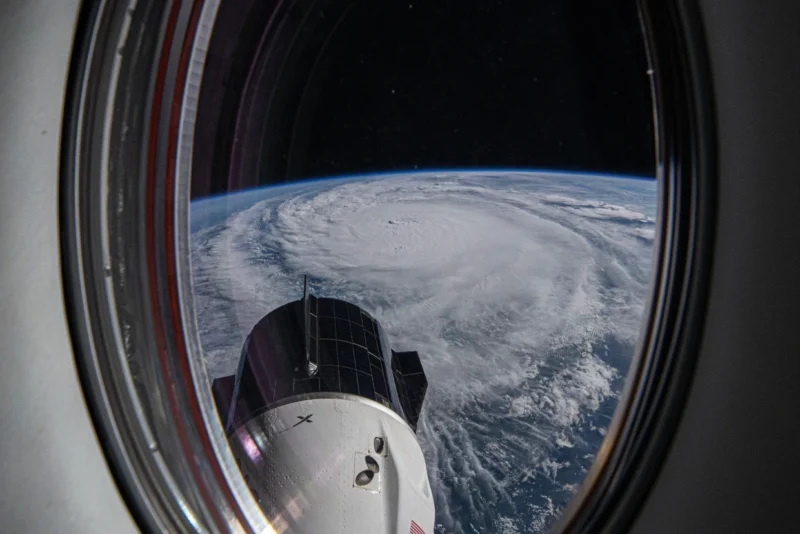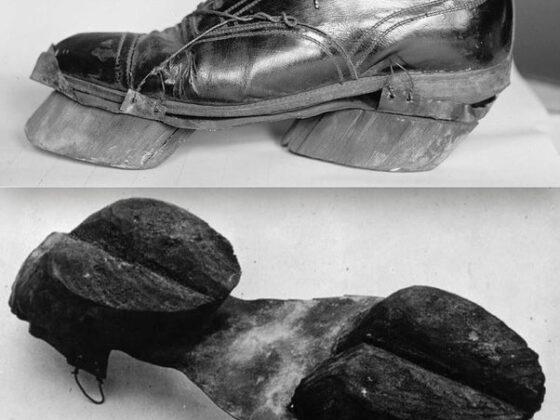As Hurricane Milton tears across Florida, leaving a trail of destruction in its wake, many are left wondering how to cope with such a devastating natural disaster. The key to surviving and thriving in the face of adversity lies not just in physical preparedness, but in developing a resilient mindset. This article explores strategies for cultivating mental toughness and emotional resilience to help you weather any storm life throws your way.
Understanding the Impact of Hurricane Milton
Hurricane Milton has proven to be one of the most catastrophic storms to hit Florida in recent years. With maximum sustained winds near 155 mph, it has caused widespread damage, flooding, and disruption to millions of lives. The Florida Division of Emergency Management has been working tirelessly to coordinate evacuation efforts and provide essential supplies to affected areas.
In times like these, it’s crucial to remember that while we cannot control natural disasters, we can control our response to them. Developing a disaster-ready mindset is not just about surviving the immediate crisis, but about emerging stronger and more resilient on the other side.
The Foundations of a Disaster-Ready Mindset
1. Acceptance and Adaptability
The first step in developing a disaster-ready mindset is accepting the reality of the situation. During Hurricane Milton, many Floridians had to quickly come to terms with the fact that their lives would be drastically altered, at least temporarily. Acceptance doesn’t mean resignation; it means acknowledging the current circumstances so you can adapt and move forward.
Adaptability is crucial in disaster situations. Those who can quickly adjust their plans and expectations are better equipped to handle the challenges that come their way. This might mean being prepared to evacuate at a moment’s notice or finding creative solutions to problems like power outages or food shortages.
2. Preparedness and Planning
While physical preparedness is essential, mental preparedness is equally important. This involves:
- Staying informed about potential risks and emergency procedures
- Creating and practicing emergency plans with family members
- Building a disaster supply kit well in advance
- Mentally rehearsing various scenarios and your responses to them
By being prepared, you reduce uncertainty and anxiety, allowing you to think more clearly and act more decisively when disaster strikes.
3. Emotional Regulation
In high-stress situations like Hurricane Milton, emotions can run high. The ability to regulate your emotions is crucial for maintaining a clear head and making sound decisions. Techniques such as deep breathing, mindfulness meditation, and positive self-talk can help you stay calm under pressure.
The American Psychological Association offers resources on building resilience and managing stress in crisis situations.
4. Focus on What You Can Control
During a disaster, many things are beyond our control. A disaster-ready mindset involves focusing on what you can influence rather than worrying about what you can’t. This might include:
- Following evacuation orders and safety guidelines
- Securing your property to minimize damage
- Helping neighbors and community members in need
- Maintaining communication with loved ones
By concentrating on actionable steps, you maintain a sense of agency and purpose, which can be empowering in otherwise overwhelming circumstances.
Building Resilience: Lessons from Hurricane Milton
1. Community Connection
One of the most powerful lessons from Hurricane Milton is the importance of community. In times of crisis, people often come together to support one another. Building strong community connections before disaster strikes can provide a crucial support network when you need it most.
Consider:
- Getting to know your neighbors
- Participating in local emergency preparedness initiatives
- Volunteering with organizations like the Red Cross
- Joining or creating a community support group
2. Flexibility and Creativity
Hurricane Milton has forced many Floridians to think on their feet and come up with creative solutions to unprecedented problems. Cultivating flexibility and creativity in your everyday life can help you adapt more easily when disaster strikes.
Practice problem-solving skills regularly, and try to approach challenges from multiple angles. This mindset can be invaluable when faced with the unexpected twists and turns of a natural disaster.
3. Gratitude and Perspective
In the midst of devastation, it can be difficult to find things to be grateful for. However, cultivating gratitude can significantly impact your ability to cope with adversity. During Hurricane Milton, many survivors have shared stories of gratitude for small acts of kindness, the safety of loved ones, or simply having survived the storm.
Maintaining perspective is also crucial. Remember that disasters, no matter how severe, are temporary. Focusing on the long-term picture can help you endure short-term hardships.
4. Self-Care and Mental Health
The stress of a disaster like Hurricane Milton can take a significant toll on mental health. A disaster-ready mindset includes prioritizing self-care and seeking help when needed. This might involve:
- Maintaining routines as much as possible
- Engaging in stress-reducing activities like exercise or meditation
- Staying connected with loved ones
- Seeking professional help if you’re struggling to cope
The Disaster Distress Helpline provides 24/7 crisis counseling for those affected by natural disasters.
Practical Strategies for Developing a Disaster-Ready Mindset
1. Education and Awareness
Knowledge is power, especially in disaster situations. Stay informed about potential risks in your area and learn about proper emergency procedures. Resources like the Ready.gov website provide valuable information on preparing for various types of disasters.
2. Regular Drills and Practice
Just as schools conduct fire drills, consider running your own disaster drills at home. Practice your evacuation plan, test your emergency kit, and ensure all family members know what to do in various scenarios. The more you practice, the more automatic your response will be in a real emergency.
3. Develop a Growth Mindset
A growth mindset, as coined by psychologist Carol Dweck, involves seeing challenges as opportunities for learning and growth rather than insurmountable obstacles. This perspective can be incredibly valuable in disaster situations, helping you to adapt and even find positive outcomes in difficult circumstances.
4. Build Physical and Mental Endurance
Physical fitness can play a crucial role in disaster survival, but mental endurance is equally important. Activities that challenge you both physically and mentally, such as long-distance running or problem-solving games, can help build the stamina needed to endure prolonged stress.
5. Practice Mindfulness and Stress-Reduction Techniques
Regular practice of mindfulness meditation or other stress-reduction techniques can help you stay calm and focused during a crisis. Apps like Headspace or Calm offer guided meditations and stress-relief exercises.
Learning from Past Disasters
Hurricane Milton is not the first major disaster to hit Florida, and it won’t be the last. Learning from past experiences can help us better prepare for future challenges.
Lessons from Hurricane Ian
In 2022, Hurricane Ian caused widespread destruction across Florida. Some key lessons learned include:
- The importance of heeding evacuation orders early
- The need for backup communication methods when cell networks fail
- The value of community-based support networks
- The long-term nature of recovery and the need for sustained mental health support
These lessons have informed many of the preparations and responses to Hurricane Milton, demonstrating the importance of learning and adapting from each disaster experience.
The Role of Technology in Disaster Resilience
Technology plays an increasingly important role in disaster preparedness and response. Some ways technology can support a disaster-ready mindset include:
- Using weather apps and alert systems to stay informed about approaching storms
- Utilizing social media platforms to check on loved ones and access real-time information
- Using GPS and mapping apps to navigate evacuation routes
- Accessing online resources for mental health support and coping strategies
However, it’s important to have backup plans for when technology fails, as often happens during severe weather events like Hurricane Milton.
The Importance of Post-Disaster Reflection
After the immediate danger of Hurricane Milton passes, taking time to reflect on the experience can be valuable for building future resilience. Consider:
- What worked well in your preparation and response?
- What could be improved for future disasters?
- How did you cope emotionally, and what strategies were most helpful?
- What new skills or knowledge would you like to acquire to be better prepared next time?
This reflection process can help you continually refine and strengthen your disaster-ready mindset.
Conclusion: Embracing Resilience in the Face of Adversity
As Hurricane Milton continues to impact Florida, it serves as a stark reminder of the power of nature and the importance of being prepared – both physically and mentally. Developing a disaster-ready mindset is not about living in fear, but about empowering yourself to face challenges with confidence and resilience.
By focusing on acceptance, adaptability, preparedness, emotional regulation, and community connection, you can build the mental toughness needed to weather any storm. Remember, resilience is not about avoiding hardship, but about having the tools and mindset to bounce back stronger.
As we support those affected by Hurricane Milton and reflect on our own preparedness, let’s commit to cultivating a disaster-ready mindset. In doing so, we not only increase our own chances of survival and recovery but also contribute to the resilience of our communities as a whole.
Stay safe, stay prepared, and remember – the human spirit is stronger than any storm.










